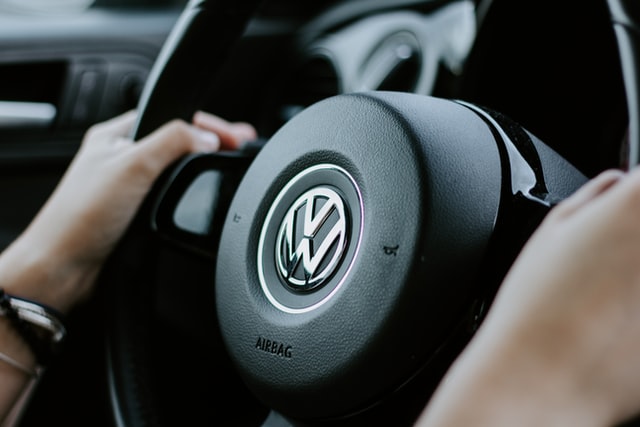As we all know, cars are prone to issues from time to time and Volkswagen’s models are no exception. From the brand new Polo, to the Golf, Taigo and even the Up!, VW vehicles have been gracing our roads for decades, with Volkswagen even earning the top spot as the largest vehicle manufacturer worldwide in 2016 and 2017. Their popularity exists for a reason and owners sing their praises regularly but no manufacture is immune to problems. From reports of problems with an overactive Check Engine light to suspension issues or an overheating vehicle, we’ve compiled some of the most common problems that VW owners see, and what they could mean.
Overactive Dashboard Lights
A commonly reported issue by owners that’s reared its head for a while now is an issue with overactive dashboard lights, particularly the Check Engine light and Battery light. MotorandWheels report that “issues with malfunctioning dashboard lights mostly affect the VW Passat, but can also occur in other models.” The issue seems to result with the lights turning on “intermittently” without there actually being any actual issue. (https://motorandwheels.com/problems-with-vw-cars/#5_Dashboard_Lights) A yellow check engine light is usually a warning and in most cases, can be easily fixed. For VW vehicles, they have been known to show a yellow Check Engine light simply for a loose petrol tank cap. Other causes can include:
- Faulty Oxygen Sensor – An emissions issue could cause this problem, or it could simply be because the sensor is clogged with dirt and needs to be cleaned out
- Worn Spark Plugs – Spark plugs don’t need changing very often but in older vehicles, a Check Engine light could appear for spark plugs that are worn down. Faulty or worn spark plugs can cause misfiring, so should be replaced as soon as possible.
- Catalytic Converter – If there’s an issue with the catalytic converter, this could see increased harmful emissions, as well as reduced performance and fuel economy overall. This should also be checked out quickly.
If the Check Engine is red, this is considered an emergency, and should never be ignored. It could mean that your engine is overheating, which could quickly catch on fire and is undeniably a hazard. Pull over as soon as the light appears and call a mechanic.
Oil Problems
Leaks and sludge build-up happen in any vehicle, but Volkswagen’s 1.8-litre turbocharged engine seems to be causing drivers problems. VWProblems repote that the engines “tiny oil capacity” often results in oil sludge, caused by moisture, heat and other contaminants. Turbochargers get very hot, and with a “tiny 3.7-quart oil capacity”, the oil has little room for error and as a result, can thicken up and become sludge far easier. VW extended the warranty as a result, promising to “help customers who had already paid for repairs, but only if they could provide documentation showing adequate maintenance records.” (http://www.vwproblems.com/oil-sludge/, 2016).
Fuel Injection Leak
The 1st Generation Atlas may have issues relating to the fuel injector system, as reported by VWProblems. The issue seems to revolve around fuel “leaking onto hot engine components” and as a result, creating a risk of fire. A federal investigation was opened for the problem in 2021. Owners report “they can smell gas” when driving their vehicles and “see gas leaking from the engine compartment” (http://www.vwproblems.com/atlas-fuel-injector-leak/, 2021). It seems to only affect the 1st generation Atlas, particularly years 2018-2021. If you own one of these vehicles, check for any recalls on your car as soon as possible.
Coolant Leaks
Coolant leaks have also been reported as a common problem in Volkswagen vehicles, usually caused by weak seals and bearings in and around the water pump. According to Motor and Wheels, oil leaks are reported regularly with the VW Gold, but this may be because is “is one of the highest-selling models of the car company.” These oil leaks are “due to normal wear and tear of engine parts,” but can seem to come about sooner than expected. If you see steam emitting from the engine, this leak could originate from the coolant flange, while puddles under your vehicle could be a sign that your radiator is the culprit. Whatever the case, this should be seen to and repaired as soon as possible to prevent your engine or other vehicle components from overheating as you drive.
For more information about common Volkswagen repairs and faults or to book your vehicle in for engine, gearbox or even bodywork repairs, feel free to get in touch with our team, today.

